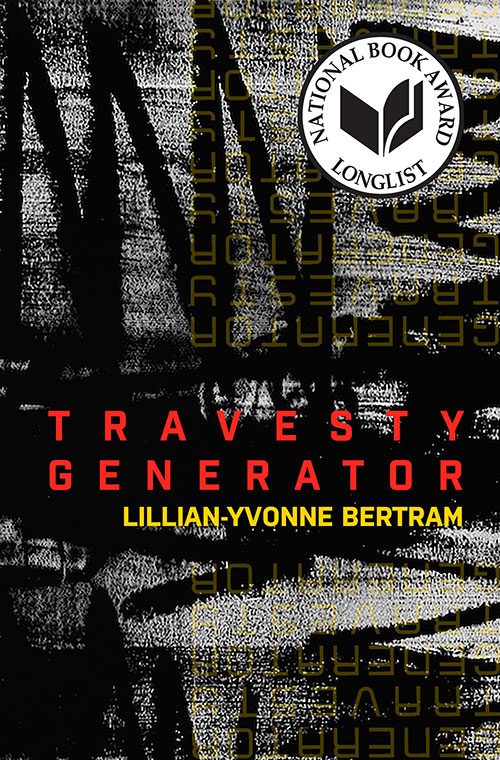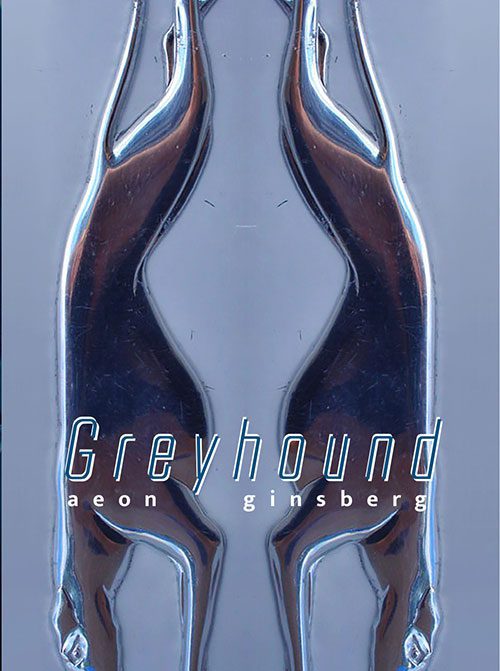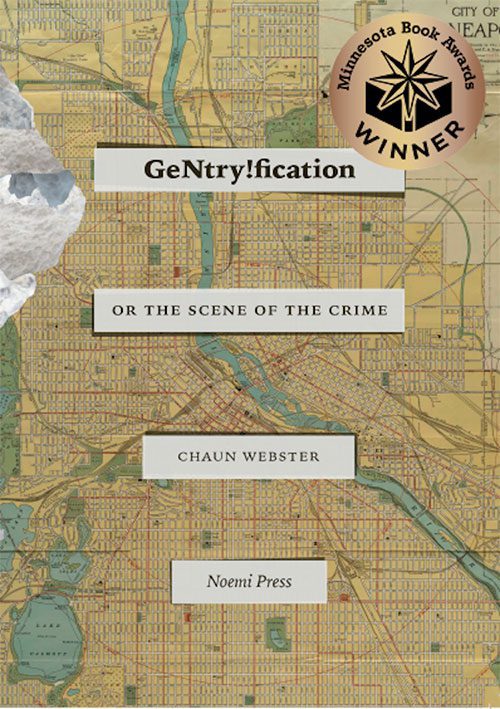Travesty Generator
by Lillian-Yvonne Bertram
$9.99 – $15.00

Blurbs
Through code poems where glitches are refrains, we witness systems that have made patterns of their errors. When in the process do we process that such glitches need scare quotes? That some accidents are power in action? Lillian Yvonne-Bertram’s ominous Travesty Generator works the problem again and again, a cyberBlues of permutating loops both automated and desperate. So, when she (re)writes, “The story does not compute,” I hear a robot and vulnerability, like AutoTune in 808s and Heartbreak. I also hear a brilliant Black shade in the machine, playing counter ‘rithm in the operating systems of racial and gender violence, poetic form, and the lyric voice.
Douglas Kearney
author of Buck Studies, Mess and Mess and, Patter, The Black Automaton, and all-around badass poet, librettist, and performer
In the wake of a racist microaggression, two people of color might look at each other and say, “That was random”—ironically meaning it was anything but. By the same token, the poems of Lillian-Yvonne Bertram’s Travesty Generator use computational processes to demonstrate that randomness offers no escape from the patterns that grief and outrage form in black lives. Composed with (and sometimes of) permutation programming code and algorithms, these poems run relentless procedures on the language of black death and black survival. Bertram’s poetic “output” will confuse and frustrate you, then mesmerize and haunt you—feelings generated by the poetry, as by the very terms of black life in this country.
Evie Shockley
author of Semiautomatic
Combining digital tools and prestidigital artistry, Lillian-Yvonne Bertram’s Travesty Generator powerfully breaks and remakes contemporary poetry’s “small machine of words.” Timely in its sociopolitical critique and visionary in its formal inventiveness, Bertram’s collection offers a guide to a poetics of the new Afro/future.
John Keene MacArthur Fellow
author of Counternarratives
Travesty Generator is so carefully crafted and considered from a standpoint of musicality. Where some would consider the voice as the sole instrument, Lillian-Yvonne Bertram understands language as the true vehicle for instrumentation. These poems sprawl generously, drift a reader seamlessly between percussive urgency and gentle harmonies. The words cascade until entire symphonies are created. What a joy, to see a book this brave and unafraid of its own many possibilities.
Hanif Abdurraqib
author of They Can't Kill Us Until They Kill Us
I am astonished by Lillian Yvonne Bertram’s trailblazing poetry in Travesty Generator. Bertram uses open-source coding to generate haunting inquiring elegies to Trayvon Martin, and Eric Garner, and Emmett Till. By framing her “counter-narratives” of black lives in code and social media optimization, Bertram brilliantly conveys how black experience becomes codified, homogenized, and branded for capitalist dissemination. Code, written by white men, is part of the hardwired system of white supremacy, where structural violence begets itself. But Bertram hacks into it. She re-engineers language by synthesizing the lyric and coding script, taking the baton from Harryette Mullen and the Oulipians and dashing with it to late 21st century black futurity. Travesty Generatoris genius.
Cathy Park Hong
author of Engine Empire, and Dance Dance Revolution



